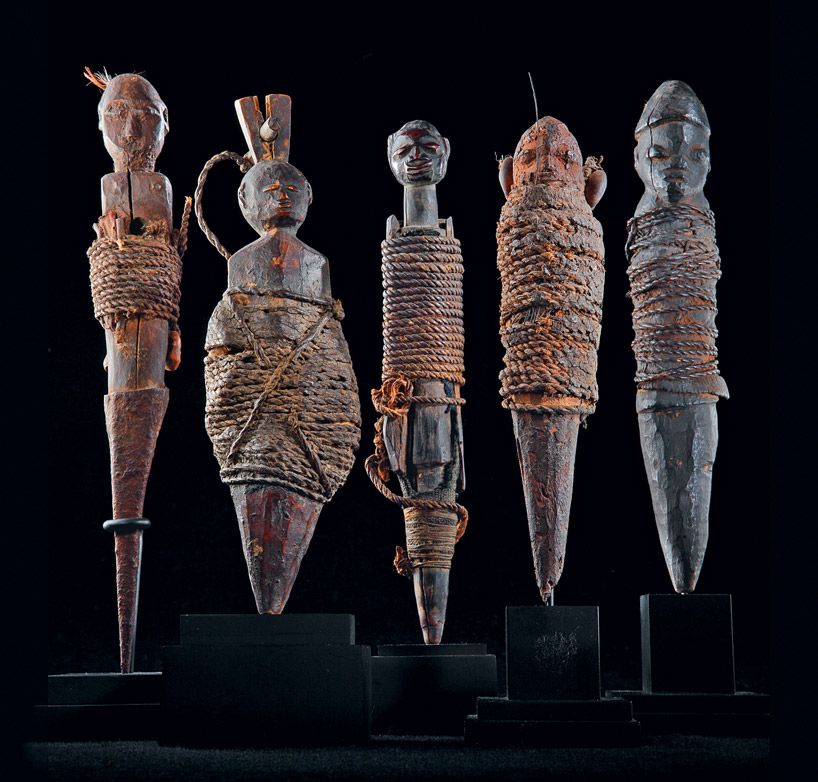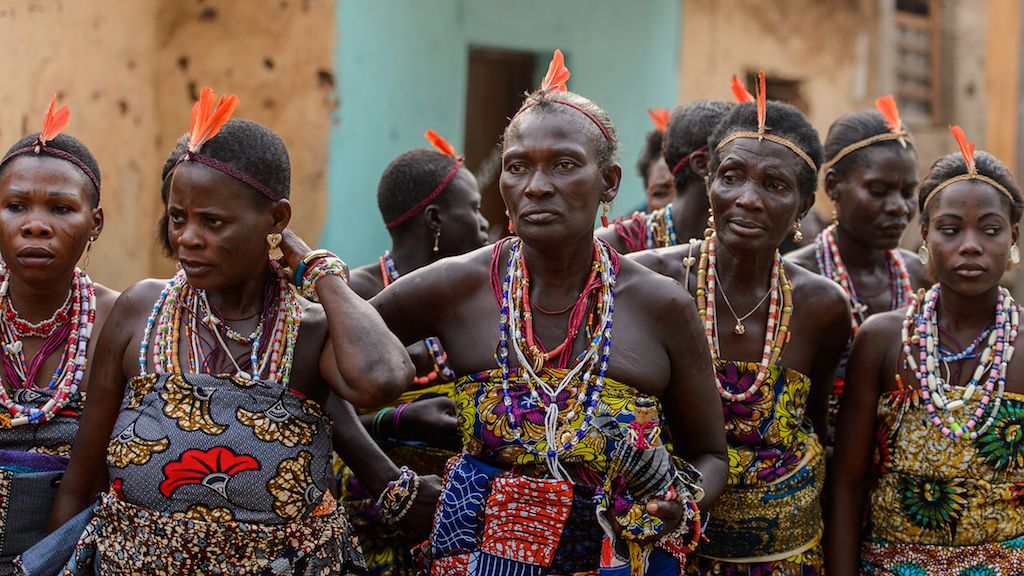Discover Vodun
This four-part program - taught by Vodun practitioner and master teacher - Richard Gerard Agbayanou - will provide authentic perspectives on the ancient and beautiful Vodun tradition of West Africa. It is designed for you to learn about the structure, the philosophy and the practice of Vodun.
Free intro video
Don't miss this one-of-a-kind learning opportunity
We won't send spam. Unsubscribe at any time.

Introduction to Vodun Spirituality
With Richard Gerard Agbayanou
VIDEO COURSE
4 Sessions
6+ Hours
Pre-recorded, evergreen content
Vodun has long been a buzzword for African spiritual power. Unfortunately, the more it’s used, the more it muddles the exceptional nature of this royal art and its secrets for living a genuine and meaningful life. In this very special series, we use the term in its original meaning, as a way of catalyzing personal growth in all aspects of mind, body, and spirit. The concepts presented in this course grow out of the Vodun tradition as it is practiced in Benin and provide us with an extraordinary framework for navigating the unprecedented challenges of modern life.
This four-part series focuses on revealing the elements of our hidden potential in order to become whole, according to the teachings of Vodun spirituality. We start by balancing our understanding of Fa and the pantheon of Vodun spirits. Then, we will explore the various branches of Vodun, as well as different aspects of Vodun devotion and priesthood.
By harnessing the power of Vodun, we create personalized maps and tools to facilitate the journey of life. The future of African identity is about rebuilding an enchanted world that restores Ancestral Memory as the guiding force in our contemporary lives.
This course is designed for Africans in diaspora who are delving into Vodun spirituality and want to deepen their understanding of the process of being whole.
About Your Instructor, Richard Gerard Agbayanou
I was born and raised in Benin Republic. I received my Maîtrise in English Didactics at the University of Abomey Calavi (Benin Republic). I speak and write French, English and Fongbé. As an educator, I have worked in several settings.I worked as an English teacher in Benin secondary and high schools for over 8 years. I work with an African-American Pan-African group known as Resplendence Language Arts where I am both Fongbé and French instructor. We partner as Sankofa Homeschool where I teach French and Danxome history (Danxome is the former name of Benin Republic).
In 2015, I founded a Saturday School in Ouidah City. It is named« le Sens de l’Elite Africaine » ; which means a crucible where we develop in the youth the values that the African leaders of tomorrow need to embody. In addition to language, SEA trains the youth of my community tin computing, artifacts, etc. promote English language through SEA English club and get the youth trained in writing and speaking better Fongbé, the most widely spoken dialect in Benin Republic.
I have also served as the Executive Director of Titigweti English Club (TEC) in 2011. TEC is the biggest English club in Benin Republic and is located on the campus of Abomey Calavi. I headed of Debate and Discussion section of the club in 2010 before being appointed Executive Director.

Course Outline
Session 1 - Introduction & Overview:
- What is Vodun?
- Myths, Mistakes, and Mysteries of seekers.
- Vodun and the spiritualization of matter.
- What is Mawu Lisa?
- What is Metolofin?
Session 2 - History:
- Creation stories, migration stories, and identity
- The Geography of Vodun: Ehve, Fon, Hweda
- The palace, the temple, the family lineage
- Vodun, colonization, slavery & liberation
Session 3 - Branches of Vodun:
- Vodun Ayijè; tied to human destiny
- Vodun Hihô; not tied to human destiny
- Fa, the science, art, and religion
- Witchcraft
- Medicines and Charms
Session 4 - Priesthood:
- Types of priest and stages of initiation, The Vodunnon, The Readers, The Hounnon, and The Amanwatô
- Types of adepts and areas of activity
- Specialized language, symbols and images of devotion
- Elements of land, water, fire and air
- Days of the week, Moon phases and devotion

